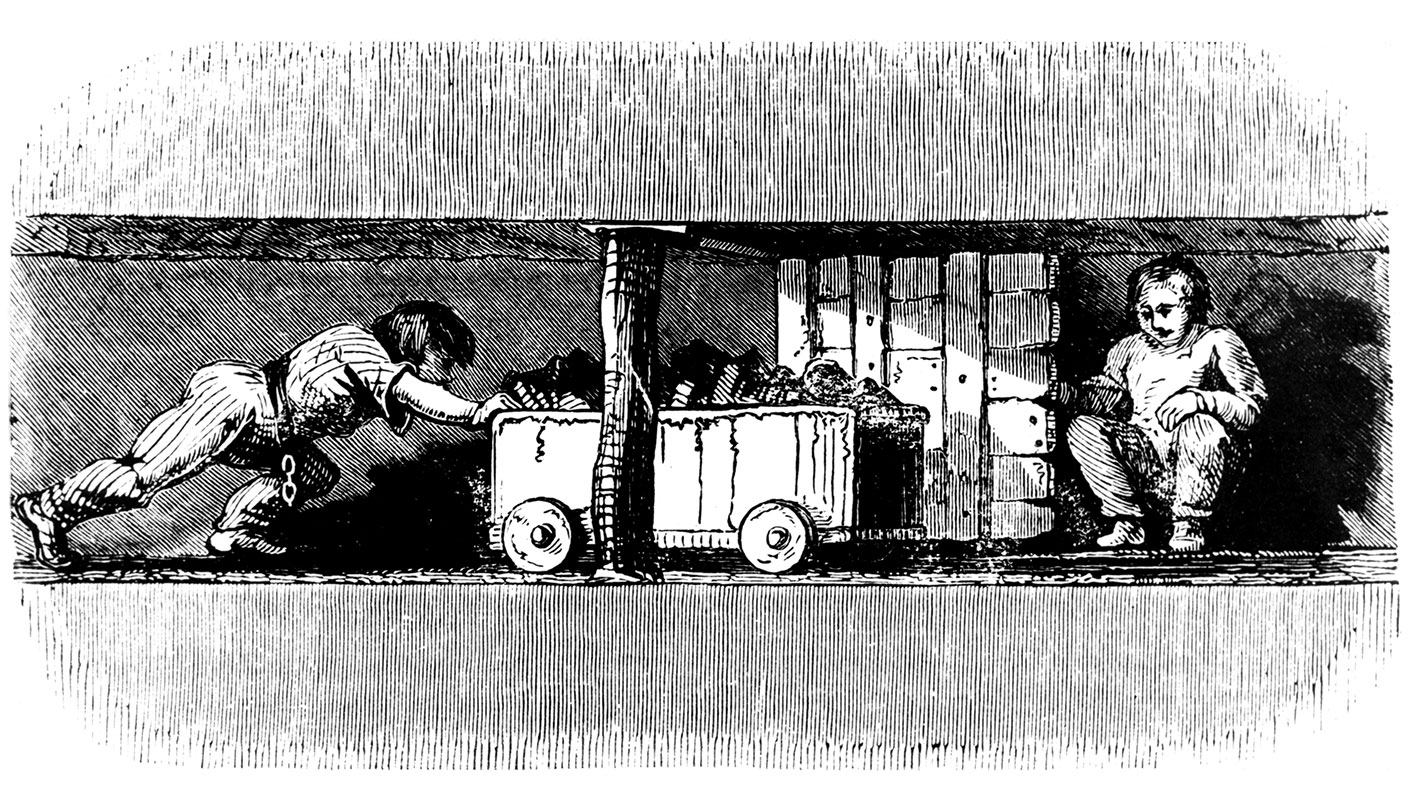
Get the latest financial news, insights and expert analysis from our award-winning MoneyWeek team, to help you understand what really matters when it comes to your finances.
You are now subscribed
Your newsletter sign-up was successful
Want to add more newsletters?

Twice daily
MoneyWeek
Get the latest financial news, insights and expert analysis from our award-winning MoneyWeek team, to help you understand what really matters when it comes to your finances.

Four times a week
Look After My Bills
Sign up to our free money-saving newsletter, filled with the latest news and expert advice to help you find the best tips and deals for managing your bills. Start saving today!
We're all for free enterprise here at MoneyWeek. But occasionally it's nice to be reminded that when capitalism is allowed to run totally unchecked, you can end up with small children working in incredibly dangerous jobs for very little pay.
Thus it was in the Britain of the industrial revolution.
Coal fuelled the engines that powered Britain's industry. And by 1841, there were over 200,000 people working the mines. Many of them were children, who would work shifts of up to 12 hours.
MoneyWeek
Subscribe to MoneyWeek today and get your first six magazine issues absolutely FREE

Sign up to Money Morning
Don't miss the latest investment and personal finances news, market analysis, plus money-saving tips with our free twice-daily newsletter
Don't miss the latest investment and personal finances news, market analysis, plus money-saving tips with our free twice-daily newsletter
Children entered the mines as young as six, employed as trappers', sitting in the dark by trap doors, opening them when minecarts came past. From there, they often progressed to “hurrying” pushing laden carts from the coal face to the shafts.
Accidents and disasters were commonplace. In 1820, six-year old Elizabeth Penry and 12-year old Annie Tonks died after an explosion at Cwmgwrach colliery. That same year, 52 people died in an explosion in Wallsend A pit, including five-year-old Samuel Lowry and seven-year-old Robert Bainbridge.
And in 1838, 26 children were drowned when the Huskar colliery near Barnsley flooded.
Although not generally badly treated, the health of the children suffered, few of them could read or write, and few of them went to church. As for their morals, the fact that much of the work was done in a state of undress grossly offended the sensibilities of the time.
Mines were “a nursery for juvenile vice which you will go far and wide above ground to equal”, said one witness to the Children's Employment Commission of 1842. It is "scarcely possible for girls to remain modest in the pits, regularly mixing with such company and hearing such language as they do", complained another.
The Commission presented its findings to Parliament. The result was the Mines and Collieries Act, which was passed on this day in 1842. It forbade any female, and any child below the age of ten, from working underground in the mines.
Get the latest financial news, insights and expert analysis from our award-winning MoneyWeek team, to help you understand what really matters when it comes to your finances.

-
 Should you buy an active ETF?
Should you buy an active ETF?ETFs are often mischaracterised as passive products, but they can be a convenient way to add active management to your portfolio
-
 Power up your pension before 5 April – easy ways to save before the tax year end
Power up your pension before 5 April – easy ways to save before the tax year endWith the end of the tax year looming, pension savers currently have a window to review and maximise what’s going into their retirement funds – we look at how
-
 31 August 1957: the Federation of Malaya declares independence from the UK
31 August 1957: the Federation of Malaya declares independence from the UKFeatures On this day in 1957, after ten years of preparation, the Federation of Malaya became an independent nation.
-
 13 April 1960: the first satellite navigation system is launched
13 April 1960: the first satellite navigation system is launchedFeatures On this day in 1960, Nasa sent the Transit 1B satellite into orbit to provide positioning for the US Navy’s fleet of Polaris ballistic missile submarines.
-
 9 April 1838: National Gallery opens in Trafalgar Square
9 April 1838: National Gallery opens in Trafalgar SquareFeatures On this day in 1838, William Wilkins’ new National Gallery building in Trafalgar Square opened to the public.
-
3 March 1962: British Antarctic Territory is created
Features On this day in 1962, Britain formed the British Antarctic Territory administered from the Falkland Islands.
-
10 March 2000: the dotcom bubble peaks
Features Tech mania fanned by the dawning of the internet age inflated the dotcom bubble to maximum extent, on this day in 2000.
-
9 March 1776: Adam Smith publishes 'The Wealth of Nations'
Features On this day in 1776, Adam Smith, the “father of modern economics”, published his hugely influential book The Wealth of Nations.
-
 8 March 1817: the New York Stock Exchange is formed
8 March 1817: the New York Stock Exchange is formedFeatures On this day in 1817, a group of brokers moved out of a New York coffee house to form what would become the biggest stock exchange in the world.
-
7 March 1969: Queen Elizabeth II officially opens the Victoria Line
Features On this day in 1969, Queen Elizabeth II took only her second trip on the tube to officially open the underground’s newest line – the Victoria Line.
